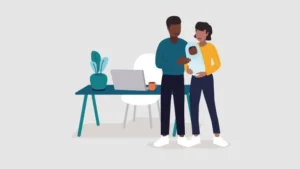Menu
Hablamos Español / Call For A Free Consultation
949-266-0880
Time away from work isn’t just about rest—it’s often about responsibility. Whether you’re welcoming a child, caring for a loved one, or handling personal health challenges, having protected leave is essential.
In California, the Family Leave Act serves as a legal backbone, ensuring you don't have to choose between your job and your family—a principle that legal experts, including firms like us at MJB Law Group, deeply understand in safeguarding employee rights.
California goes above and beyond federal regulations by offering robust family leave protections through the California Family Rights Act (CFRA), Paid Family Leave (PFL), and Pregnancy Disability Leave (PDL). Together, these laws create a mosaic of employee rights tailored to the modern workforce.
The Family Leave Act in California largely refers to the CFRA, which grants eligible employees job-protected, unpaid leave for specific family and medical reasons.
CFRA is unique to California and provides broader coverage than federal law. It protects employees taking leave to care for themselves or family members—defined more inclusively than under the federal FMLA.
While both CFRA and FMLA offer 12 weeks of leave, CFRA:
To qualify for CFRA leave, you must:
Thanks to SB 1383, the CFRA now applies to companies with as few as 5 employees—expanding access dramatically.
Parental bonding is a cornerstone of CFRA. You can take time off within a year of a child’s birth, adoption, or placement.
Need to care for a sick spouse, parent, child, grandparent, sibling, or domestic partner? CFRA has your back.
When your own health is on the line, CFRA provides the space to recover without sacrificing your employment.
CFRA also includes time off for specific circumstances related to a family member’s military service.
How long can you be away? It depends on your needs—and the type of leave.
Eligible employees are entitled to 12 workweeks of job-protected leave in a 12-month period.
You don’t have to take all your leave at once. Intermittent leave or reduced hours may be available with medical certification.
In some cases—like combining PDL with CFRA—you may qualify for more than 12 weeks total.
Leave isn’t just time off—it comes with vital safeguards for your role and healthcare.
Your employer must reinstate you to the same or a comparable job once your leave ends.
Group health insurance coverage continues during CFRA leave, just as if you were actively working.
Give at least 30 days’ notice when foreseeable. Emergencies? Notify as soon as possible.
Employers can request medical certification—especially for your own or a family member’s serious health condition.
Keep copies of everything—forms, emails, letters—and document your interactions with HR or supervisors.
Let’s talk dollars and cents—because we all have bills to pay.
CFRA doesn’t require employers to pay you, but…
California’s PFL offers up to 8 weeks of partial wage replacement during CFRA-qualifying events.
You may (or may be required to) use sick/vacation time to cover unpaid periods.
PFL works hand-in-hand with CFRA, easing financial burdens during family crises.
Administered by EDD, this program offers partial wage replacement for bonding and caregiving leave.
Applications are available through California’s EDD portal. Eligibility depends on recent earnings and employment history.
You can receive benefits for up to 8 weeks. Payment amounts vary but are based on your income.
PDL fills in an important gap that CFRA doesn’t cover.
PDL covers time off for pregnancy-related medical conditions—up to 4 months per pregnancy.
You can stack PDL with CFRA for extended time off—especially useful after childbirth.
Although they overlap, the two laws aren’t identical.
CFRA covers more family relationships and applies to more workplaces.
CFRA includes domestic partners and siblings; FMLA does not.
If FMLA was used for an unqualified reason under CFRA, you may still have CFRA time left.
Thanks to SB 1383, small businesses are no longer left out.
This law expanded CFRA’s reach to employers with just 5 workers—giving millions more access.
You have the same rights as workers at large corporations—don't let your employer tell you otherwise.
Employers have clear legal duties… and ignoring them can lead to consequences.
Employers must inform employees of their CFRA rights and maintain a leave policy.
Any form of punishment for using or requesting leave is illegal.
Companies must retain leave-related documents for at least three years.
No one should lose their job for putting family first.
Termination, demotion, reduced hours, or harassment after requesting or taking leave may qualify.
You may be entitled to reinstatement, back pay, and attorney’s fees.
Sometimes, standing up for your rights means getting legal help.
If your employer denies your leave, retaliates, or fires you—get help fast.
Documented communications, timesheets, and medical records can be crucial in court.
Work from home? You still have rights.
Leave laws apply to remote employees—so long as your employer meets the coverage criteria.
Stay organized, keep written communication, and know your boundaries.
There are real consequences for non-compliance.
This is a direct violation of state law and could result in legal action.
Employers can’t use your leave as an excuse to dismiss you.
If your rights are violated, file a complaint with California’s Department of Fair Employment and Housing or the EEOC.
California leads the way in inclusive leave protections.
The definition of “family member” includes domestic partners and non-biological parents.
LGBTQ+ parents can take leave to bond with a child—regardless of biological connection.
CFRA is one of the few laws that formally recognizes domestic partnerships.
This includes spouses, domestic partners, siblings, grandparents, and grandchildren.
Proof of relationship—such as joint lease or partnership registration—may be needed.
Returning from leave shouldn’t feel like walking on eggshells.
Employers may need to offer flexibility or transitional support.
If your position no longer exists, your employer must provide a comparable role.
These can be used consecutively for maximum coverage—especially for pregnancy and bonding.
Disability benefits may kick in before PFL—timing is everything.
At MJB Law Group, we’re more than just attorneys—we’re your fiercest advocates. As a boutique litigation law firm in California, we specialize in employment and personal injury law.
Whether you’ve been denied family leave, wrongfully terminated, or retaliated against, MJB Law Group has your back. Our compassionate, results-driven attorneys take the time to know your story… and then fight relentlessly for your rights.
Trust MJB Law Group—because your story deserves justice.

The Family Leave Act in California empowers workers to take care of what matters most—without sacrificing their livelihood. From parental bonding to medical recovery, California’s laws offer more than just time off, they offer peace of mind.
When challenges arise, know your rights—and know who’s in your corner. Whether it’s a legal question or a full-blown dispute, MJB Law Group is here to help.